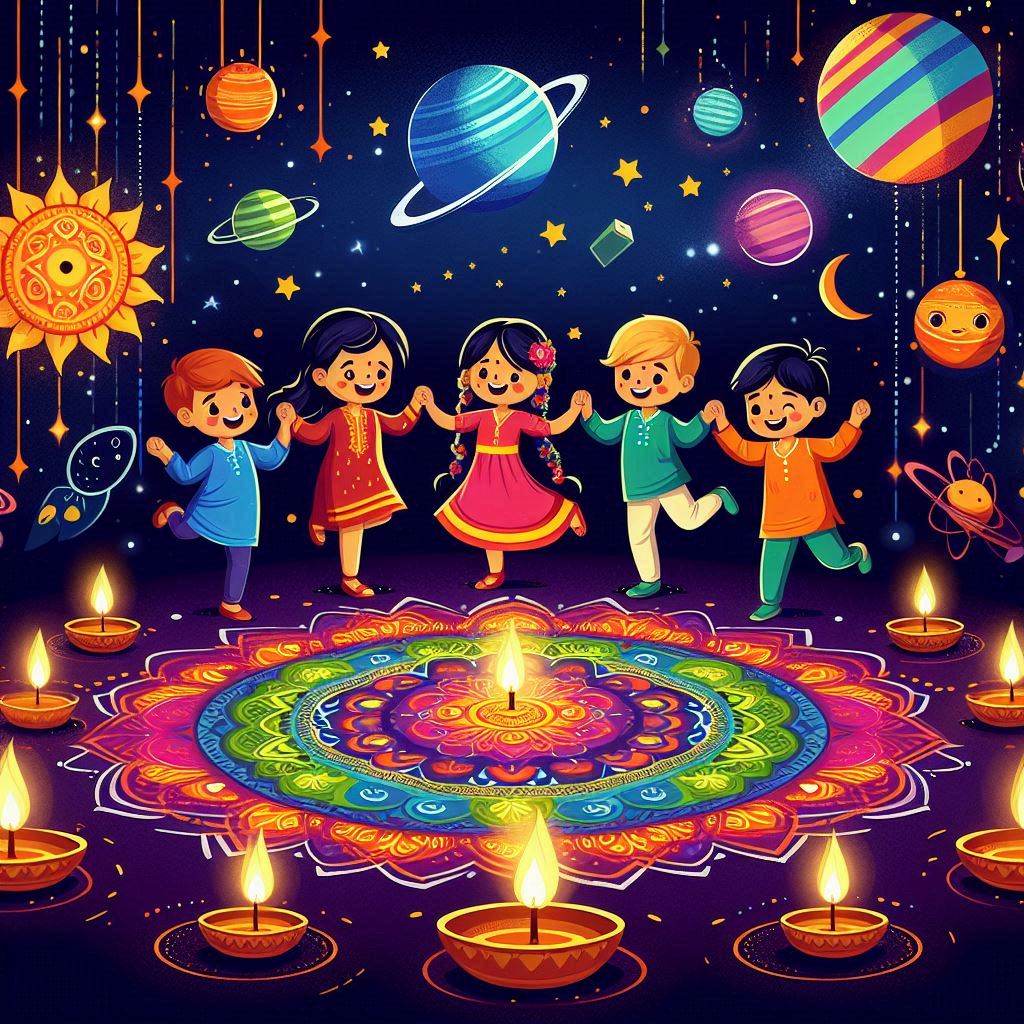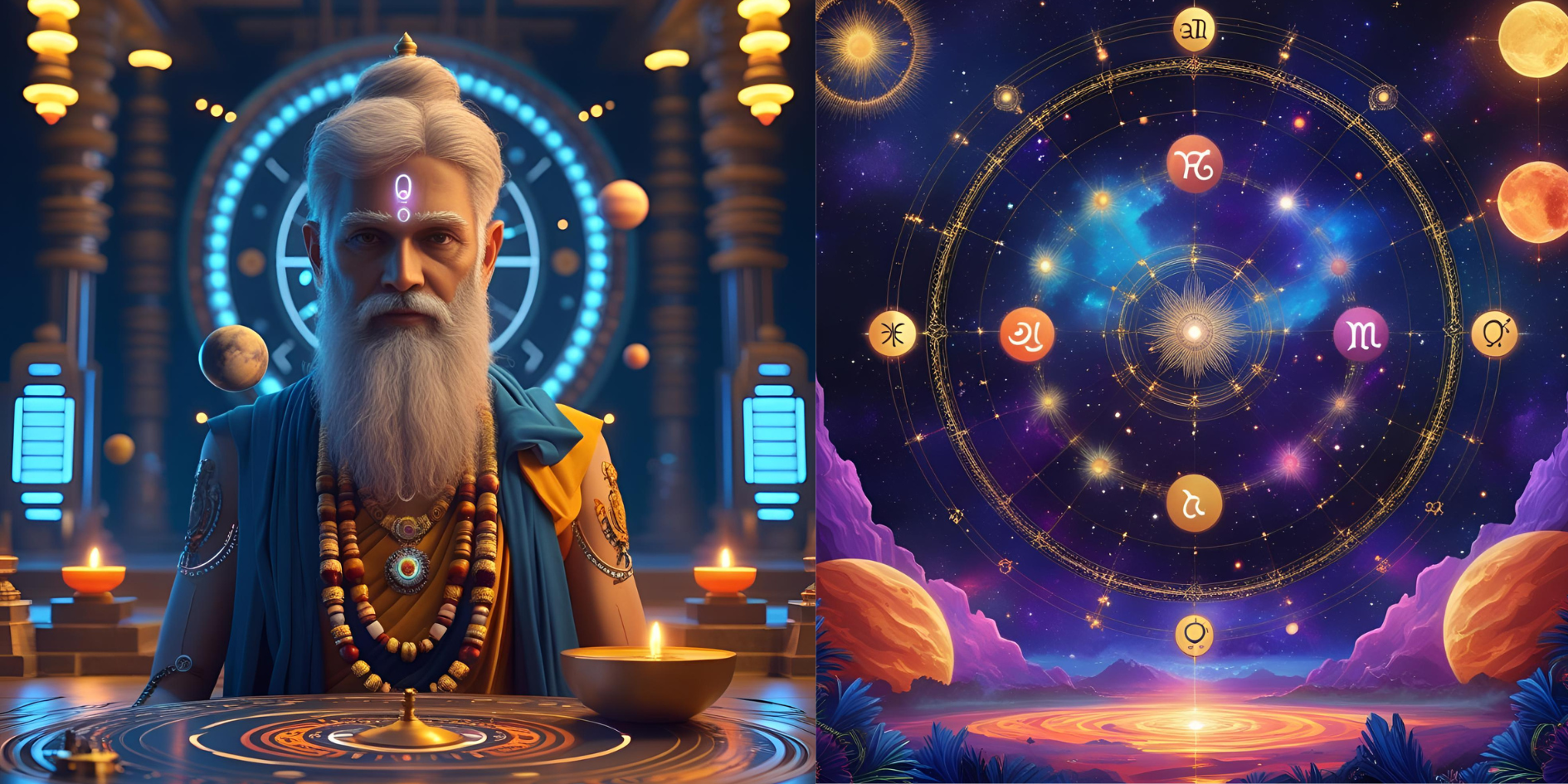Hindu festivals are vibrant, culturally rich celebrations that bring people together in joy and devotion. Each festival carries deep-rooted traditions and is often linked with specific astrological events. Understanding the astrological significance of these festivals can enhance our appreciation of their timing and rituals. In this blog post, we’ll explore how planetary positions influence major Hindu festivals like Diwali and Navratri, shedding light on the astrological wisdom embedded in these celebrations.
1. The Connection Between Astrology and Festivals
Astrology plays a crucial role in Hinduism, where the positions of celestial bodies are believed to impact our lives and the natural world. Festivals are typically scheduled according to the Hindu lunar calendar, which is influenced by the positions of the sun, moon, and planets. These cosmic events are seen as auspicious times for specific rituals, worship, and celebrations.
2. Diwali: The Festival of Lights
Diwali, also known as Deepavali, is one of the most celebrated Hindu festivals. It symbolizes the victory of light over darkness and good over evil. Astrologically, Diwali falls on the new moon day (Amavasya) of the month of Kartika, which usually occurs between October and November.
The new moon represents new beginnings, making it an ideal time for fresh starts and rejuvenation. The position of the moon during Diwali is particularly significant, as it enhances the energy of introspection, purification, and hope. In the days leading up to Diwali, various planetary positions may influence individual energies, affecting how people engage in the festival's preparations and rituals.
Planetary Influence on Diwali:
- Jupiter: Often associated with growth and prosperity, a favorable Jupiter position during Diwali can enhance financial luck and abundance.
- Venus: As the planet of love and beauty, a strong Venus can enhance the festive spirit, encouraging family bonding and joyful celebrations.
During Diwali, people often perform Lakshmi Puja to invite prosperity and success into their homes. The astrological alignment on this day is believed to attract wealth and happiness, reinforcing the importance of the cosmic timing of this festival.
3. Navratri: The Nine Nights of Worship
Navratri is a nine-night festival dedicated to the worship of the goddess Durga, representing power and feminine energy. This festival typically falls in September or October and is observed during the lunar month of Ashwin. The astrological significance of Navratri lies in its timing during the transition of seasons, which is thought to be an auspicious period for spiritual awakening and renewal.
Each of the nine nights of Navratri is dedicated to a different form of Goddess Durga, and the planetary positions can influence the energies associated with each day. This festival culminates in Vijayadashami (Dussehra), marking the victory of Lord Rama over the demon king Ravana.
Planetary Influence on Navratri:
- Mars: Often associated with strength and courage, a prominent Mars can empower devotees to overcome obstacles and challenges during this time.
- Moon: The moon's phases during Navratri can influence the emotional and spiritual state of individuals, guiding them towards deeper meditation and connection with the divine.
Devotees engage in fasting, prayers, and vibrant celebrations, which are all considered auspicious activities during this time. The alignment of planets can amplify the spiritual energy, making it easier for devotees to connect with the divine and seek blessings.
4. The Importance of Timing
The timing of Hindu festivals is crucial, as specific planetary alignments can enhance or diminish the efficacy of rituals. Astrologers often analyze the positions of planets in relation to the festival calendar to provide guidance on the most auspicious days for worship and celebration. Understanding these cosmic influences can help individuals align their intentions and actions with the energy of the universe.
Conclusion
The astrological significance of Hindu festivals like Diwali and Navratri reveals the deep connection between celestial events and cultural celebrations. By recognizing the influence of planetary positions on these festivals, we can deepen our understanding of their rituals and enhance our participation in the festivities. Embracing this astrological wisdom not only enriches our celebrations but also aligns our lives with the cosmic rhythms of the universe, making every festival a more meaningful experience.






